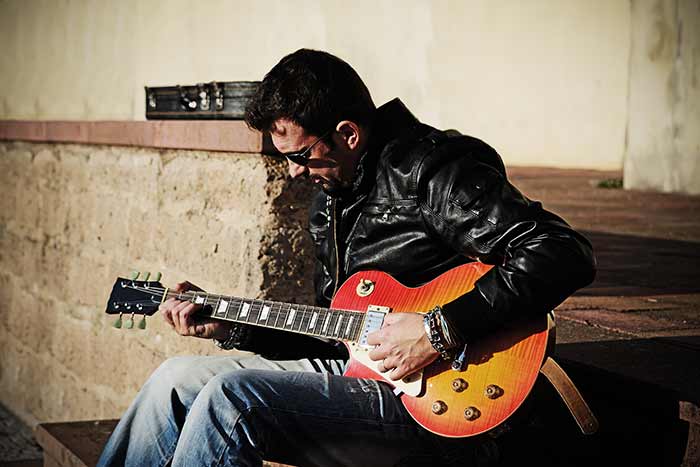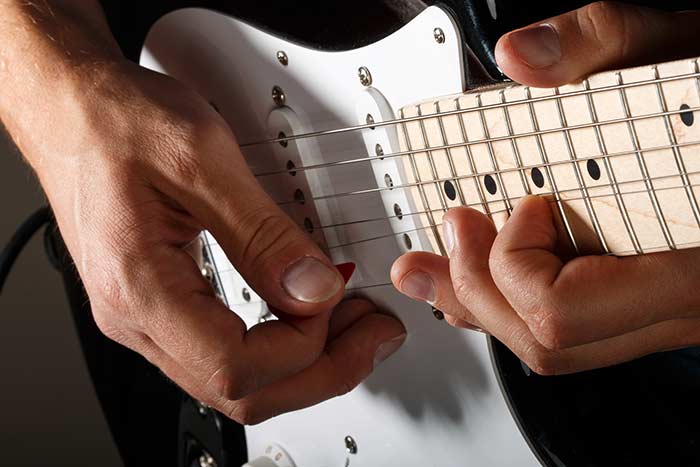Learning to play the guitar is a journey that varies in duration from person to person. While there’s no one-size-fits-all answer, the time it takes to become proficient at playing the guitar depends on several factors, including your goals and the amount of time you invest in practice.
Basic Skills in a Few Months
For many beginners on their guitar-learning journey, the prospect of playing basic songs and chords can be realised within a few months of consistent practice. During this initial phase, you’ll typically focus on mastering fundamental chords, learning strumming patterns, and getting comfortable with the instrument. This period is marked by the development of foundational skills, enabling you to strum your favourite tunes and gain a sense of accomplishment. While this is just the tip of the musical iceberg, it’s a crucial starting point on your path to guitar proficiency. With dedication and regular practice, you’ll find yourself strumming along to your favourite songs in no time.

Intermediate Level in a Year or Two
As your guitar journey progresses, you’ll likely reach the intermediate level after about a year or two of dedicated learning and practice. At this stage, you’ll have to move beyond the basics and delve into more complex aspects of playing. You’ll gain a deeper understanding of music theory, which will empower you to explore a wider range of songs and styles. Chords and strumming patterns become more intricate, and you might begin to experiment with fingerpicking or other advanced techniques. Achieving an intermediate level of guitar proficiency is a significant milestone that opens the door to playing more challenging music and perhaps even writing your own songs. It’s a stage that requires patience and perseverance, but the rewards in terms of musical versatility are well worth the effort.
Becoming proficient
Reaching a state of proficiency in playing the guitar is the culmination of several years of dedication and practice. It’s a point in your musical journey where you’ve honed your skills to a high degree. At this level, you not only play songs with ease but also have a deep understanding of the instrument, music theory, and advanced techniques. You might be capable of intricate fingerstyle playing, improvisation, and even composing your own music. Proficient guitarists often have a versatile skill set that allows them to explore various genres and styles. While this stage demands substantial commitment and persistence, it’s the gateway to truly expressing yourself through the guitar and potentially pursuing professional opportunities in the world of music. Becoming proficient is a journey that, for most, takes years to accomplish, but the fulfilment that comes from mastering the guitar is immeasurable.

Your Goals Matter
The timeline for learning the guitar is deeply influenced by your goals and aspirations. Whether you seek to strum a few campfire songs, become a capable hobbyist, or aspire to be a professional musician, your objectives will dictate how long it takes to achieve them. For those aiming at the simpler joys of strumming a few chords and playing familiar tunes, this can be accomplished relatively quickly with dedicated practice. On the other hand, if your vision involves becoming a virtuoso or a sought-after guitarist, you’ll embark on a longer, more intensive journey of development and learning. Recognising and setting clear goals for your guitar playing is essential, as it will steer your practice routines and ultimately determine the time it takes to reach your desired level of expertise. Regardless of your goals, the love for music and the guitar itself is what drives the learning process, making the journey a rewarding one, regardless of its duration.
Patience and Practice
No matter your goals or the stage you’re at in your guitar learning journey, two constants remain: patience and practice. These are the twin pillars upon which progress is built. Learning the guitar, like mastering any skill, requires a consistent and patient approach. It’s not about rushing to the finish line, but about the daily commitment to improvement. Success in learning the guitar is achieved one chord, one scale, and one song at a time.
Patience is crucial because there will be moments of frustration, times when it feels like your fingers won’t cooperate, and periods when progress seems slow. However, these are all part of the process, and it’s in overcoming these challenges that real growth occurs.

Practice is the driving force behind improvement. Regular, focused practice sessions are where you refine your skills and build your musical understanding. Setting aside dedicated time each day or week for practice is what transforms novices into competent players and competent players into virtuosos.
In the end, regardless of how long it takes to learn the guitar, it’s your dedication to practicing with patience that will determine your success. The journey is as important as the destination, and it’s the passion for playing that makes the effort worthwhile.
In conclusion, the time it takes to learn the guitar is highly individual. Some may achieve basic skills in a few months, while others may spend years honing their craft. Your dedication and effort you put into learning and practicing will ultimately determine your progress.
If you want to get started with the guitar in Dubai, look no further for the best guitar lessons Dubai has to offer!
We also provide guitar lessons online.







